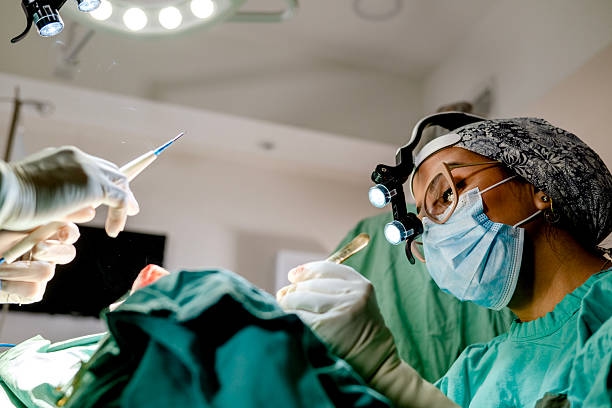Private hernia surgery is becoming a common choice for people who want faster treatment, more personal care, and skilled surgeons. A hernia happens when an organ or fatty tissue pushes through a weak spot in the muscle or tissue wall. This condition is painful, and it does not cure by itself. Surgery is often the only lasting solution. In this article, we will look at what private hernia surgery is, why it is done, what benefits it offers, and when you should consider it.

What is a Hernia?
A hernia occurs when tissue or an organ bulges through weak muscles. The most common types include:
Inguinal hernia: When tissue pushes through the lower abdominal wall near the groin.
Femoral hernia: Similar to inguinal but happens lower down near the upper thigh.
Umbilical hernia: When tissue bulges near the belly button.
Hiatal hernia: Occurs when part of the stomach pushes into the chest through the diaphragm.
Incisional hernia: Develops at the site of a previous abdominal surgery.
Anyone can get a hernia, but they are more common in men, older people, and those who lift heavy objects often.
Why Do You Need Hernia Surgery?
Hernias do not heal on their own. In fact, they usually get worse with time. While some hernias are painless at first, they can later cause severe discomfort or dangerous complications. Without treatment, they can lead to strangulation, which means the blood supply to the trapped tissue is cut off. This requires an emergency surgery.
So, if you have swelling at the groin, pain when lifting, or a visible bulge that does not go away, surgery is the only real fix.
What is Private Hernia Surgery?
Private hernia surgery means getting treatment in a private hospital or clinic rather than through long waiting lists in public healthcare systems. In private care, you can often get consultations quickly, surgery scheduled within days, and more advanced procedures like laparoscopic or robotic-assisted operations.
Patients also get private rooms, personalized follow-ups, and flexible options for booking surgery dates. Many people choose private hernia surgery to reduce stress and recover faster in a comfortable setting.
Benefits of Private Hernia Surgery
There are several advantages of having surgery in a private setting:
Shorter waiting time: You can usually book surgery quickly instead of waiting for months.
Experienced surgeons: Private hospitals often have specialists with wide experience in hernia repair.
Advanced techniques: Options like keyhole (laparoscopic) surgery are available, which means smaller scars and faster recovery.
Comfort and privacy: Patients get better facilities, private rooms, and more direct communication with doctors.
Flexibility: You can choose a convenient date for the surgery.
How is the Surgery Performed?
There are mainly two types of hernia surgery:
Open surgery – A single cut is made over the bulge, and the hernia is pushed back before the muscle wall is repaired, often using a mesh for strength.
Laparoscopic (keyhole) surgery – Small cuts are made, and instruments with a camera are used to repair the hernia. This causes less pain afterward and patients usually return to normal life quicker.
Both methods are safe, and the doctor will decide which one is best for your condition.
Who Should Consider Private Hernia Surgery?
You may choose private hernia surgery if:
You are in too much pain and cannot wait for a long list in public hospitals.
You want faster recovery and return to work.
You prefer a private room and comfort during the hospital stay.
You want access to more modern techniques like laparoscopic or robotic repair.
For professionals, athletes, and people with busy lives, private hernia surgery can help them get back to normal activities faster.
Recovery After Surgery
Recovery depends on the type of surgery. Most patients can go home the same day or the next day after a simple repair. With open surgery, it may take around 4 to 6 weeks before heavy lifting is allowed. Laparoscopic surgery often allows people to return to light work within 1 to 2 weeks.
Common advice during recovery:
Avoid heavy lifting for some weeks.
Take pain medicine as instructed by the doctor.
Eat a light and healthy diet to avoid constipation.
Slowly increase walking and light activity each day.
Most people recover fully without any problems, but a few might notice swelling, bruising, or mild pain which usually improve with time.
Possible Risks and Complications
Like all surgeries, hernia repair carries some risks:
Infection or bleeding
Reaction to anesthesia
Recurrence of hernia in rare cases
Pain or discomfort in the operated area
However, in private healthcare, the risks are minimized due to better monitoring and professional follow-up care.
Costs of Private Hernia Surgery
One of the main concerns people have is the cost. Private hernia surgery can be more expensive than public care, but it saves time and improves quality of life. The cost depends on the type of hernia, the procedure chosen, and the hospital’s facilities. Some people also use insurance which covers part of the expenses.
Final Thought
Private hernia surgery offers comfort, speed, and professional care for a condition that cannot heal by itself. People who want less waiting and quicker recovery often find this option very useful. While the cost might be higher, the benefits of faster relief and better quality care make it worthwhile.
If you are looking for safe and reliable private treatment, clinics like jalsurgery offer trusted services for hernia patients.
